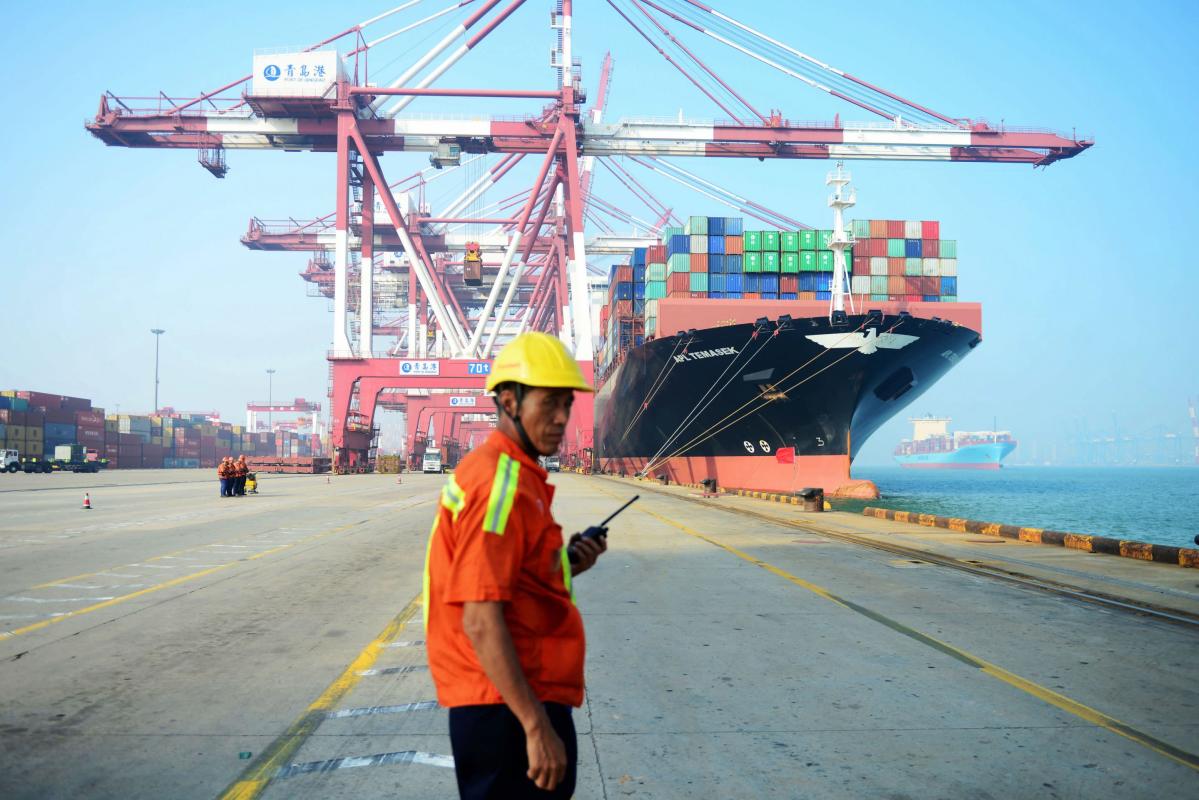‘Companies are beginning to panic’: Experts say China’s lockdowns will make inflation and the supply chain nightmare even worse

China’s strict COVID-19 lockdowns will exacerbate global supply chain woes and add to inflation in the coming months, experts say.
President Xi Jinping’s zero-COVID policy is being tested as the country struggles to tame its worst virus outbreak yet. Frustration is rising over food shortages, people being locked down in their homes for weeks, and a policy of killing pet dogs suspected of being infected with COVID.
While China’s tech hub Shenzhen has emerged from its nearly month-long lockdown, China’s biggest city, Shanghai, home to the world’s largest container port, has remained shuttered since March 28.
Now, the economic effects are starting to show. Fuel demand in China is on track to drop 20% this month in the biggest decline since the first wave of COVID-19 lockdowns more than two years ago, sources told Bloomberg on Friday. And global supply chains are beginning to feel the crunch as well.
A supply chain nightmare
One in five container ships is now stuck at ports worldwide, with 30% of the backlog coming from China. And Lars Jensen, the CEO of the shipping container industry consulting firm Vespucci Maritime, told Fortune that the full impact of China’s policies will only begin to reveal itself over the coming weeks.
“Until now most vessels have still been calling Shanghai almost as per normal—this means cargo to Shanghai does not end up in the wrong place,” Jensen said. “But this is likely to change in the coming weeks if the lockdown is not removed. Then you will see more omissions of Shanghai as a port and canceled sailings, and the [supply chain] impact will increase.”
Even if strict lockdowns in Shanghai are lifted, U.S. ports will likely be slammed with a wave of pent-up cargo from newly reopened factories in China. That will lead to higher freight rates, Jensen says, and worsen congestion at ports worldwide.
Victor Meyer, COO of the risk intelligence provider Supply Wisdom, believes it will take months for supply chains to return to normal, and he expects U.S. ports could begin experiencing disruptions soon.
“The next effect will likely be felt in the U.S. West Coast’s ports of Los Angeles and Long Beach as the pent-up demand reaches them,” he said.
Another inflationary shock
Problems at ports mean rising costs for companies and increasing inflation for U.S. consumers, experts say.
“Companies are beginning to panic. The downstream impact is coming, and it’ll be heavy.” John Bree, the chief risk officer at Supply Wisdom, said. “The latest China lockdowns combined with the Russia-Ukraine war is too heavy a burden. The global chaos is going to further exacerbate disruption and take inflation to a new level.”
Bree’s statement is backed up by recent reports from investment banks, which are also warning of the economic impacts of China’s lockdowns. Bank of America analysts led by Ethan Harris said in a note to clients on Friday that it’s yet “another adverse supply shock for the global economy” that will weaken growth and extend the period of high inflation.
And Dylan Alperin, head of professional services at the supply chain software firm Keelvar, noted that transportation costs make up 7.7% of global GDP, which means delays at ports typically lead to rising inflation.
“The freight cost for a single container from China to the U.S. went from $5,900 last year to $15,764 today,” Alperin said. The impact of those price increases alone could significantly drive inflation up globally, he added.
Dawn Tiura, CEO of the Sourcing Industry Group (SIG), an association of sourcing and procurement professionals, said that she also suspects that China’s lockdowns will lead to higher inflation.
“Our supply chains are so interconnected and they’ve become fragile that a single issue in one place will affect consumers around the globe,” Tiura said.
And Jim Bureau, the CEO of Jaggaer, a global commerce and procurement technology company, noted that many U.S. manufacturers source raw materials and components from Chinese suppliers, which could lead to shortages of critical electronics and machinery components.
China accounts for 18% of all the goods the U.S. imports, according to Bank of America. And for computers and electronics, that number rises to 35%.
“The most recent wave of shutdowns in China will only exacerbate supply constraints, with a trickledown effect on finished goods supply,” Bureau added.
This story was originally featured on Fortune.com




